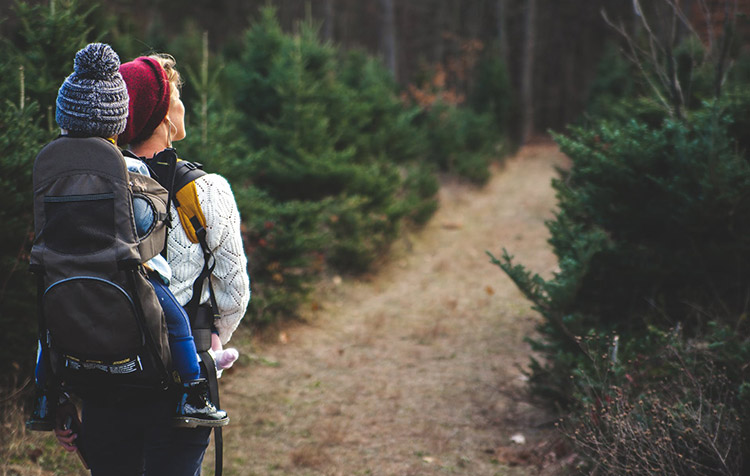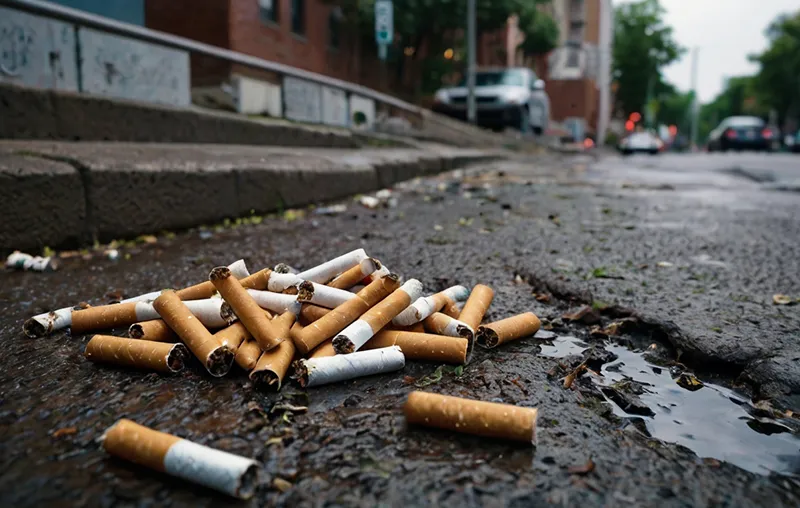How can you bring children closer to environmental protection and get them excited about our nature? First of all, it's great that you've got the Environmental awareness of your child. After all, we are all role models and must ensure that future generations can also grow up on a healthy planet! Increasing children's environmental knowledge and raising their awareness of sustainability requires a healthy mix of love, knowledge and experiences.
Matching to this, I would like to give you now in this post the best tips & ideas to the hand, to children the topic of sustainability and environmental protection basically easier to convey. Have fun!
- Simply explain
- Read books
- Identify birds
- Build bee hotel
- Join painting contests
- Grow vegetables
- Nature trails hiking
- Proverbs explain
- Determine plants
- Collect plastic waste
- Visit mercy farm
- Wooden table upcycle
- Watch Videos & Movies
- Throw household
- Answer quiz questions
Notice: Of course, there are thousands of ways to increase your child's environmental awareness. Here I would like to give you a small overview with easy to implement tips & ideas. If you think of more, feel free to write me a comment with your suggestions.
Environmental protection for children - 15 effective tips & ideas
Raising children's awareness of environmental protection may sound like a mammoth task at first. But don't worry: it's not that complicated. And it doesn't happen overnight, but steadily. It is a development process.
With the following tips & ideas, you'll lay the foundation for your child's development into an environmentally conscious person.
1. explain the concept of environmental protection to children
Since the concept of environmental protection is not really tangible, you should first explain it to your child. This makes it much easier to promote environmental awareness.
Environmental protection basically means that we repair existing damage to our planet and do as little damage as possible to the environment in the future. To get a more practical reference, my suggestion: First the respective Explain environmental problem - and then the Explain connection with our everyday life. In other words, moving from knowledge to action. At Environmental problems of our time you will find an overview with the respective solutions.
Make yourself and your child aware that "environmental protection for children" is not only about teaching children about environmental protection, but also about securing their own livelihoods for the future.
2. read books together
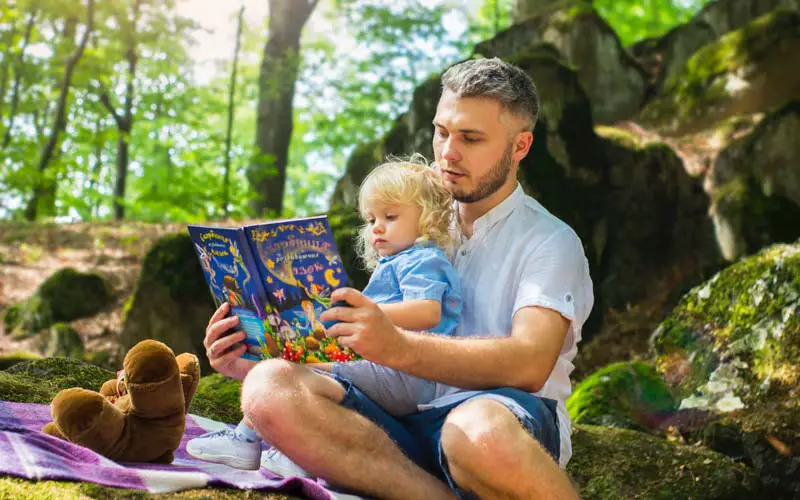
To promote your children's environmental awareness, you should regularly read suitable books together. Depending on their age, with a little less or a little more textual content. Either way, the feel of books and their environmental content makes learning easier.
Experience has shown that the learning effect is very high with the following books:
- „We protect our environment" by Carola von Kessel (you get here*)
- "100 Things You Can Do for the Earth" by Janine Eck (you get here*)
- "The mole Grabowski" by Luis Murschetz (you get here*)
- "Piwi and the plastic soup" from Project Blue Sea e.V. (there's here free of charge from the Federal Environment Agency)
3. identify birds in nature together
You learn much more about nature when you seriously engage with it. This works really well in your own garden, for example. How about taking some time to identify the birds in your own garden or at another favorite place in nature?
Experience has shown that this works really well with the following books:
- "Animal and Plant Guide" by Anita van Saan, Holger Haag and Bärbel Oftring (you get here*)
- "Birds as guests in the garden" by Axel Gutjahr (you get here*)
Ideally, at home you will not have a lifeless, pure rock garden, but a paradise for birds. If hardly any birds can be heard, the article about the Bird friendly garden help further.
Tip: Also feel free to explain to your child that you can Do not feed ducks may and how to How to feed a hedgehog correctly.
4. build bee hotel
Bees need a shelter. A bee hotel is quickly built and simply attached to the wall near the terrace. With a few nails, some clay and wood, you and your child can make an important contribution in this way in the fight against the species extinction perform.
A good Instructions for building a bee hotel has provided, for example, the NABU!
5. participate in painting contests
Whether they're held regionally in your neighborhood or nationally on the Internet, coloring contests are everywhere. They encourage creativity and help children to deal more intensively with certain topics. For example, a coloring contest can focus on environmental protection or other forward-looking challenges.
The BMU provides you with a matching overview of current competitions available.
6. grow vegetables in the garden
We used to have our own vegetable patches as children. This gave us a better feel for how plants grow and are cared for. And also that the food on our plates didn't come from the supermarket, but from nature. 😉
Just get some plant seeds and free up a small corner of your garden or balcony to grow vegetables.
Tip: Contribution about sustainable gardening you'll also learn how to turn your garden into a real natural paradise. That's sure to please the little ones, too!
7. hiking through nature trails
Surely there are also developed theme trails near you to bring your child closer to the protection of our environment. They convey new knowledge about our nature through facts, sounds or games, for example. Nature trails are created on a wide variety of topics - whether soil, forest or air.
Tip: For some environmental or animal welfare organizations there are also youth areas. Maybe this is also something for your child!
8. reading inspirational sayings
Small sayings can have a big impact. For example, explaining a few quotes from famous people about environmental protection to your child can also make them more environmentally aware. Here are some examples:
- "Adopt the pace of nature: her secret is patience." (Ralph Waldo Emerson)
- "Be yourself the change you wish to see in this world." (Mahatma Gandhi)
- "Any stupid boy can crush a bug. But all the professors in the world can't make one." (Arthur Schopenhauer)
- "What we do today will determine what the world looks like tomorrow." (Marie von Ebner-Eschenbach)
At Environmental Protection and Sustainability Quotes you will find a whole collection of rousing sayings.
9. identify plants in nature together
You and your child can explore what flowers, trees, and other plants grow in your neighborhood. Just grab a suitable book about plant species and try to identify the plants you see in the garden or during walks in nature.
Experience has shown that this works really well with the following books:
- "What's in bloom?" by Ursula Stichmann-Marny and Dr. Heike Herrmann (you get here*)
- "Animal and Plant Guide" by Anita van Saan, Holger Haag and Bärbel Oftring (you get here*)
10. collect plastic waste together
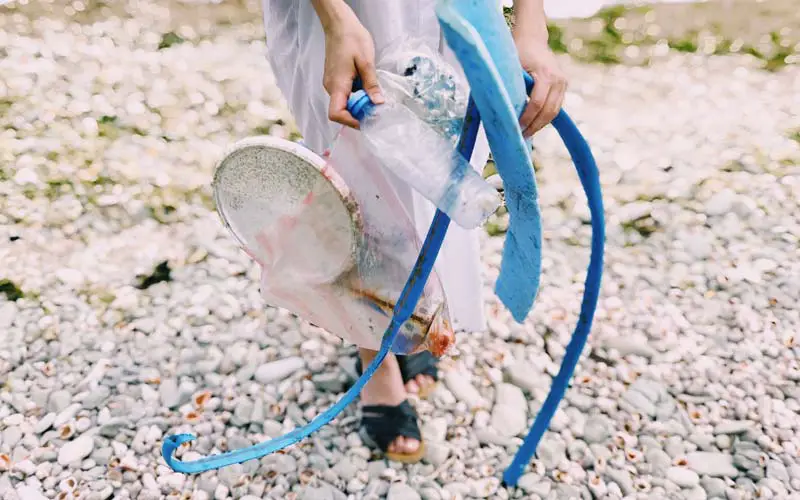
Plastic waste in the environment is one of the greatest challenges of our time. Because it doesn't just disappear by itself. But we can help to reduce it ourselves. For example, by spontaneous clean-up actions. So before you go for your next walk, just grab a pair of gloves or a pair of pliers and a big bag - and you can pick up a bit of garbage along the way. It's fun, it gets you moving, and it's good for the environment.
Of course, this also works great in organized form with a whole school class or your child's friends. Learn more in the article about the Organize a CleanUp. You are also welcome to be part of our global CleanUp Community on Facebook be. There, people from all over the world share their cleanups.
Tip: Also by the way, on vacation you can all collect garbage together. This welds together and is something different.
11. visit a grace farm
Is the circus with animals still contemporary? Or the Keeping wild species in zoos? In my opinion, rather not. Tight caging, small enclosures and cruel dressage methods are anything but species-appropriate and animal-friendly. Nevertheless, in order to give children direct contact and new experiences with larger animals, a visit to a sanctuary is extremely educational. It makes clear that all Animals sentient beings and provides a sense of where cow's milk, pork or other animal products come from.
You can also get more tips in the article Help animals in everyday life.
Notice: Of course, you can also visit an animal shelter together. However, it can be assumed that your child will want to rescue a dog, cat or mouse. So be aware of this in advance in case an animal doesn't fit in well with your life plans at the time and you want to avoid disappointing your child 😉.
12. upcycling a wooden table together
Kids love to tinker and build! Why don't you just build your new kitchen table yourself from old oak planks before you order it for a lot of money and with a lot of plastic waste on the Internet? Unique with a personal story, instead of impersonal mass-produced goods - sounds cool, doesn't it? Here are some examples from the DIY furniture blog for inspiration:
- Build desk yourself
- Build dining table yourself
- Build bedside table yourself
- Build coffee table yourself
Warning: Please take care of your fingers! Especially the handling of tools such as saws or the hammer is not without danger!
13. watch videos & movies
The Internet is full of useful explanatory videos on the topics of sustainability and environmental protection that are also child-friendly. I have embedded one of them here above.
ZDF's youth program "ZDFtivi" also repeatedly deals with environmental problems and their solutions. The "Sendung mit der Maus" or "Wissen macht Ah!" are of course also highly recommended.
Tip for adults: The Dominion film is about the background of the Factory farmingwhich is responsible for many of the biggest environmental problems of our time. After that, at least, I had the unconditional urge to change something about it. My honest assessment: hard to watch, but extremely effective.
14. let children join the household
If you are already very live sustainablythe whole thing is of course even easier. Whether for your child or yourself - the following articles are guaranteed to help you:
Tip: Surely you will also find in the article 100 Good deeds in everyday life still a lot of additional inspiration!
15. make environmental protection quiz
If you want to teach your child about a conscious approach to nature, you can do so in a fun way with a classic environmental quiz. After all, puzzles are entertaining, challenging and educational - all in one.
A good environmental quiz is available both digitally on the Internet and in haptic paper form to turn the pages. Here are some recommendations:
- WAS IST WAS Quiz Nature (you get here*)
- Environmental quiz from ökoLeo (you can do online here)
Tip: By the way, it's not only children who can be inspired by environmental protection! Find out in the linked article how you can also inspire older generations, such as your Bringing sustainability closer to parents simply by following your heart.
Explaining and bringing environmental protection closer to children - simple and important!
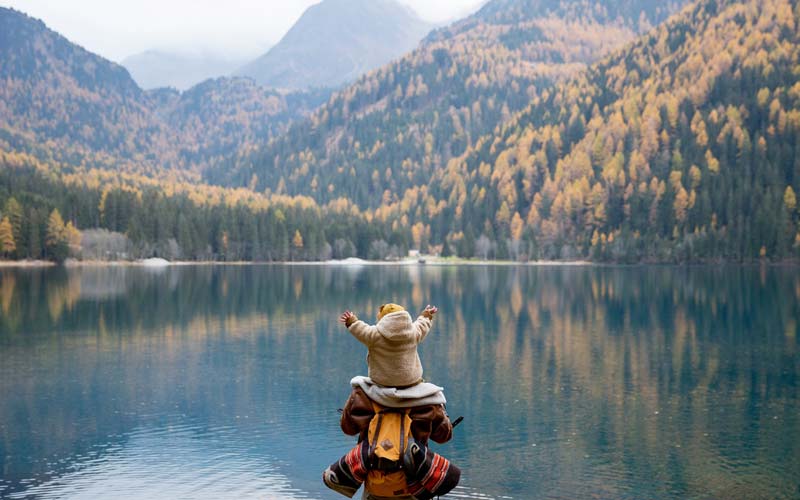
I think you now have a lot of tips on how to promote environmental awareness and sensitize children to sustainability. Make your child aware that every person can make a difference and become the solution to the problems of our time. Greta Thunberg is a walking example of this. Travel together more by bicycle and on foot than by car. Realize that every food item has a story - and that everything we do in our daily lives affects our environment in some way.
In the best case, the teachers at school also play along! For example, by regularly collecting trash in the playground or explaining environmental problems and their solutions. In the article Environmental protection in school you can also pick up some inspiration.
Do you have any questions or suggestions about environmental protection for children? Or can you think of any other tips? Then feel free to write me a comment!
Stay exemplary,

PS: Whether it's a veterinarian, a teacher or an engineer for wind turbines - you can also explore future-oriented professions together. And who knows - when your offspring grows up, he'll find something to do in the CareElite Job Portal even perhaps a suitable environmentally friendly profession with real added value for the environment and society.

